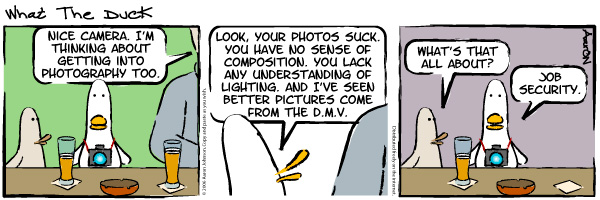Copyright is the battleground of the digital age
Well, the government had their way, and with the collusion of the Tories the Digital Economy Bill was passed for a third reading with barely two hours of debate, and it will get royal assent and pass into law before Parliament is dissolved. The good news for photographers is that the Tories did manage to wrangle some concessions from the Government, not least of which was the dropping of Clause 43. Stop 43 a coalition of photographers has been quoted as saying:
“The UK government wanted to introduce a law to allow anyone to use your photographs commercially, or in ways you might not like, without asking you first. They have failed.”
But it is clear that the issue of copyright in the digital age is not going to go away. Dominic Cooper, the General Secretary of the Chartered Institute of Journalists has just sent me through this:
Google’s sweeping digital book settlement is facing extra complication and delays as photographers and illustrators prepare to file a fresh class action lawsuit against the internet company over images used in the publications it has been digitising.
The American Society of Media Photographers and a number of related trade associations are expected to file the case against Google on Wednesday in the US District Court for the Southern District of New York.
The action is separate but similar to a class action that is the subject of a pending $125m settlement filed against Google by authors and publishers related to the Google Library Project, which aims to scan some 18m books on to an online database. Photographers and illustrators were not allowed to join the existing class action suit, and have opted to file their own case.
“Google is scanning in books and publications with visual images, which impedes the rights of the copyright holders of those images. We are seeking compensation for that,” said James McGuire, founding partner of law firm Mishcon de Reya, who is leading the case.
The reality is that the rapidly changing business models for photography are resulting in increasing numbers of amateurs being content to earn a few bucks here and there through sales of images via photo-sharing sites like Flickr without being overly concerned about tracking usage and third party syndication or other copyright infringements. Many are simply chuffed to see their images in print, and while there is nothing wrong with this in principle, it is leading to a wholesale dilution of the market’s expectations of how “photographers” regard their intellectual property. As a result, while many professional photographers are learning to shift their business strategies and diversify by playing the amateurs at their own game with frequent submissions to similar sites and microstock agencies, they are having to fight a rearguard action to protect their work from big business which has the power to ride roughshod over photographers as a whole.
For any amateurs reading this, the moral is simple: there is more than enough room for you and the often excellent work you produce, but if you don’t place a realistic value on it then others will treat it as worthless, and in the end that makes photography as a whole all the poorer.
So on the subject of photographers protecting their jobs, it seems a good time for some more What The Duck:

UPDATE: Have just discovered that Michael Fallon MP (whom regular readers will recall I had written to on this issue) voted against the bill as a whole. Thank you Mr Fallon. I would like to think my letter had some influence.


Leave a Reply